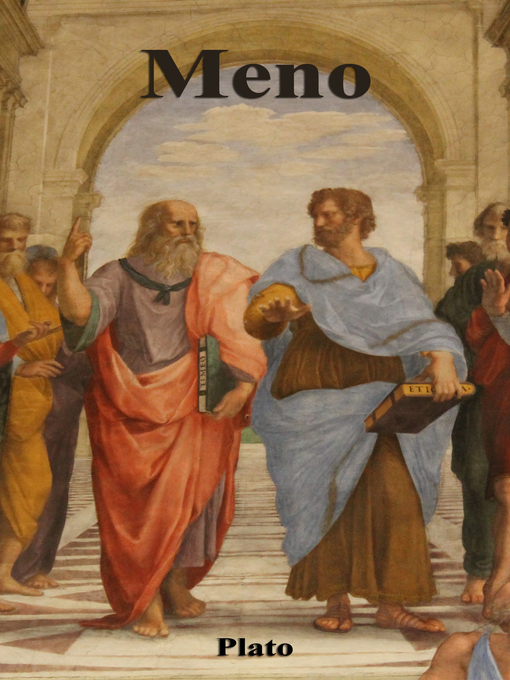Meno is a Socratic dialogue written by Plato. It attempts to determine the definition of virtue, or arete, meaning virtue in general, rather than particular virtues, such as justice or temperance. The first part of the work is written in the Socratic dialectical style and Meno is reduced to confusion or aporia. In response to Meno's paradox (or the learner's paradox), however, Socrates introduces positive ideas: the immortality of the soul, the theory of knowledge as recollection (anamnesis), which Socrates demonstrates by posing a mathematical puzzle to one of Meno's slaves, the method of hypothesis, and, in the final lines, the distinction between knowledge and true belief.
- New eBook additions
- Available now
- Popular eBooks
- Try something different
- New kids and teen additions
- Book Club Picks
- Series Starters
- It's a Mystery!
- See all
- New audiobook additions
- Available now
- Popular audiobooks
- Try something different
- New kids and teen additions
- Listen Up: Great Narrators
- Audiobooks for your Commute
- Sweet nothings in Your Ear
- For the Love of Listening (to audiobooks)
- Full Cast Audiobooks
- See all
- New magazine additions
- Popular magazines
- New kids and teen additions
- Try something different
- Business & Finance
- Let's Get Crafty
- Health & Fitness
- Cooking up Something Good!
- Celebrity Magazines
- Sports
- Family & Parenting
- Tech & Gaming
- Fashion
- See all

